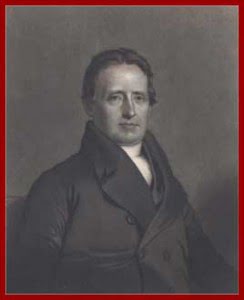STUDIES IN THE WESTMINSTER SHORTER CATECHISM
by Rev. Leonard Van Horn.
Q. 5. Are there more gods than one?
A. There is but one only, the living and true God.
Scripture References: Deut. 6:4. Jer. 10:10.
Questions:
1. What proofs can we offer that there is only one true and living God? We can offer proof from Scripture as it says, “Hear, O Israel, the Lord our God is one Lord.” (Deut. 6:4). We can offer proof from reason since there can be only one first cause and ultimate end of all things. Scripture is logical when it states as the first verse: “In the beginning God . . .” Many have called this one of the important verses of the Bible.
2. Why not begin our study of God with the Trinity?
We begin with God since this is the method the Scripture uses. The Bible presents first the truth of the one true and living God and then proceeds to unfold the mystery of the Trinity.
3. What does it mean when it says “one only” in this Question?
The teaching here does not deny the fact of the Trinity or the deity of Christ or the Holy Spirit. It rather points out that absolutely none other person or being shares the attributes of the “one only” true God. He cannot be compared to anything else in the entire universe, all of which He alone created and governs.
4. What may we learn from this truth?
We may learn to recognize Him as Almighty and Sovereign. Our attention is thereby called to the fact that there is only One Supreme Being, Maker, Designer and Lawgiver of the world and that He is the only One.
5. What do we call the doctrine of one God?
This teaching is called “Monotheism” in opposition to “Polytheism”, the teaching that there are many gods. The pagan world is Polytheistic. In contrast to this, Paul says, “. . . we know that air idol is nothing in the world, and that there is none other God but one.” (I Cor. 8:4b)
6. What is the meaning of the word “living” in this Question?
The word “living” emphasizes that He alone has life in Himself and is therefore the Fountain of life to all His creatures. Dr. William Childs Robinson points out that “He calls Himself the LIVING God. Our Lord Jesus speaks of God as the LIVING Father, Peter confesses the Saviour as the Son of the LIVING God, Paul calls the Church the Church of the LIVING God and believers the children of the LIVING God.” He further states that “He has life in and of Himself and He gives life to everything else.”
THE ONE GOD and CHRISTIAN LIVING
Bavinck states in his treatise on “The Being of God”: “The first thing that the Holy Scripture wants to give us, in its use of all those descriptions and names of the Divine Being, is an ineradicable sense of the fact that Jehovah, the God, who has revealed Himself to Israel and in Christ, is the very, the true, and the living God. The idols of the heathen and the idols (panthesistic and polytheistic, deistic and atheistic) of the philosophers, are the work of men’s hands: they cannot speak nor see, they cannot hear, nor taste nor go . . . People want to make God a dead God so that they may treat Him as they please.”
There should be a definite relationship between our belief in the “one only, the living and true God” and our Christian living. We can not treat our God as the world desires to treat Him. Those of us who have been redeemed by the sovereign grace of the Sovereign God should recognize that our belief in Him implicates us in serious responsibilities.
There is our responsibility for Prayer and Bible Study. This is basic in order for us to be good stewards of our responsibilities. It is fine to have definite beliefs and to be able to recite the Catechism. It is fine to be known as those who are committed to the Standards of our Church, who are Calvinistic to the core. But without diligence in prayer and in the study of God’s Word, the committed one becomes a weak sound for the Saviour. Too many of us are in such a hurry about material things, about duties of the church, that we do not have time for private devotion. If a person is wrong here he becomes wrong all the way through.
There is our responsibility for God-centered living. The Christian who is dedicated to the Westminster Standards, the Reformed point of view, is a Christian who in his world and life view must stand in direct contrast to the non-Christian in all of his actions, words and thoughts. One of the greatest hindrances to the testimony of the church today is that it is too difficult for an unbeliever to tell the difference between himself and the nominal Presbyterian who has merely professed to believe.
Many other responsibilities could be mentioned. However, if all of us would make a covenant with God, the living God, to fulfill the above two in the months to come, the living God would make use of His people in a mighty way. The result would be something all churches need. The result would be REVIVAL of religious living!



